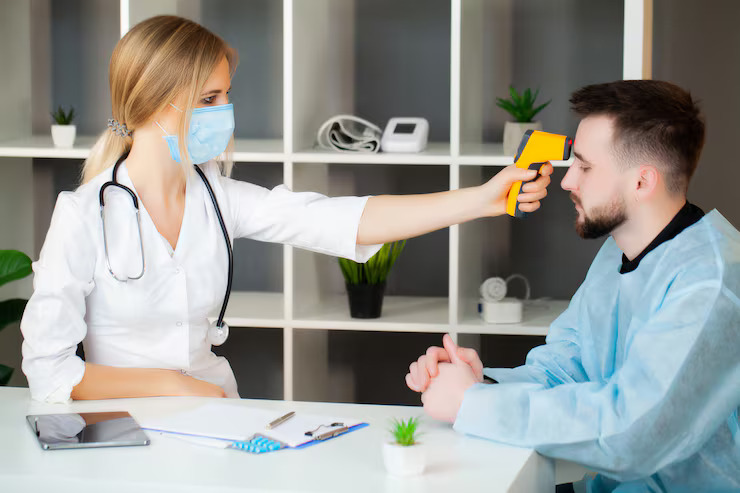In today’s healthcare landscape, knowing where to go for medical help can be confusing. For many non-emergency situations, urgent care clinics have emerged as a convenient and cost-effective alternative to the emergency room. They bridge the gap between your primary care physician’s office (which may be closed or require an appointment) and the ER (which is designed for life-threatening conditions).
Understanding which conditions can be safely and effectively treated at an urgent care center can save you time, stress, and money.

Common Illnesses Urgent Care Can Treat
Urgent care clinics are fully equipped to handle a wide range of common, non-emergency illnesses. If you’re feeling unwell and can’t get in to see your doctor, consider an urgent care visit for:
- Respiratory Infections: This includes conditions like the common cold, the flu, bronchitis, and sinus infections. If you have a persistent cough, fever, congestion, or a sore throat, an urgent care doctor can diagnose the issue and prescribe necessary medication.
- Strep Throat and Earaches: These can cause significant discomfort and are easily diagnosed and treated at an urgent care clinic. They can perform a quick strep test or examine your ear canal to provide a solution.
- Urinary Tract Infections (UTIs): Symptoms such as painful urination, frequent urges to urinate, or lower abdominal pain can be a sign of a UTI. Urgent care centers can provide a quick diagnosis and prescription for antibiotics.
- Skin Conditions: Rashes, minor allergic reactions, insect bites, and skin infections can all be evaluated and treated at a walk-in clinic.
When to Go for Minor Injuries
Beyond illnesses, urgent care is also the right choice for many common injuries that aren’t severe enough for an ER visit. These include:
- Sprains and Strains: If you’ve twisted your ankle or pulled a muscle, an urgent care clinic can take an X-ray to rule out a fracture and provide treatment such as splinting, bracing, or crutches.
- Minor Cuts and Lacerations: For cuts that may require stitches but are not life-threatening, urgent care provides a fast and efficient way to get the wound cleaned, closed, and dressed to prevent infection.
- Minor Burns: First or second-degree burns that are not extensive can be safely cleaned and dressed by medical professionals at an urgent care center.
When to Go to the Emergency Room Instead
While urgent care is perfect for a variety of conditions, it is crucial to know when to go to the emergency room. The ER is for life-threatening or severe conditions. Seek immediate emergency care for:
- Chest pain or heart attack symptoms
- Symptoms of a stroke (sudden numbness, weakness, confusion)
- Severe bleeding or a large, deep wound
- Difficulty breathing or shortness of breath
- Major trauma, such as a car accident or a severe fall
- Loss of consciousness
- High fever accompanied by a severe headache or stiff neck
Conclusion
Urgent care clinics provide a vital, accessible option for your healthcare needs. By understanding the types of illnesses and injuries they treat, you can receive prompt, quality medical attention without the long waits and high costs often associated with an emergency room. The next time you face an unexpected illness or minor injury, an urgent care visit may be the best choice for a quick diagnosis and effective treatment.
Frequently Asked Questions (FAQs)
Q: Do I need an appointment to visit an urgent care clinic?
A: No, urgent care clinics operate on a walk-in basis. While some may offer online check-in to reduce your wait time, an appointment is not required.
Q: Will I see a doctor at an urgent care clinic?
A: You will be seen by a qualified medical professional, which could be a physician, a physician’s assistant (PA), or a nurse practitioner (NP). All are trained to diagnose and treat the conditions handled by urgent care.
Q: Is it more expensive to visit urgent care than my doctor’s office?
A: In most cases, the co-pay for an urgent care visit is slightly higher than a standard primary care visit but is significantly less expensive than an emergency room visit.
Q: Can urgent care clinics prescribe medication?
A: Yes, urgent care clinics can prescribe a wide range of medications, including antibiotics, for the conditions they treat. They can also often call the prescription directly into your pharmacy.
Q: How does urgent care compare to a telehealth visit?
A: Telehealth is excellent for many minor issues, but urgent care is necessary for conditions that require a physical examination, lab tests (like for strep or a UTI), or imaging (like for a sprain).
To learn more about how our services can help you, we invite you to visit our website https://sccplano.com/ or contact us directly. Our team of experts is dedicated to providing compassionate, personalized care and can answer any questions you may have. Call us (972) 848-0873 / (972) 633-8747 today to schedule a consultation.
